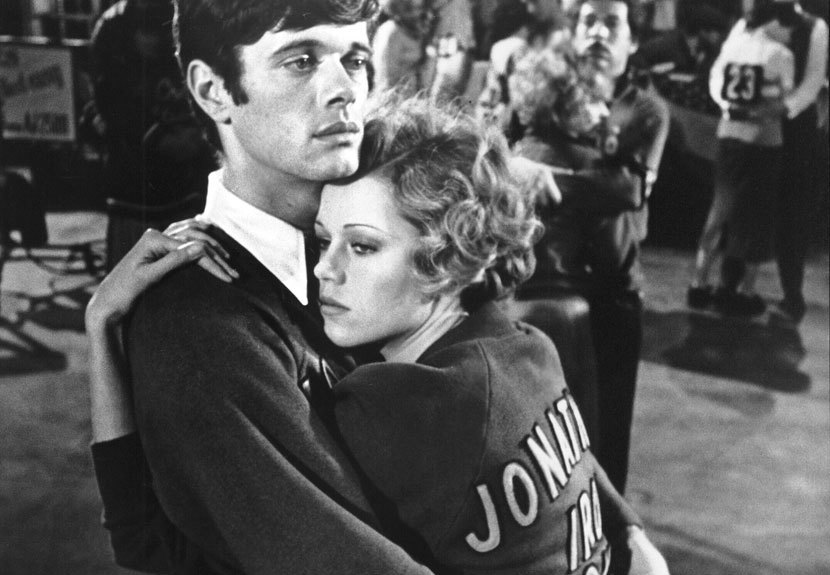Thursday
Waves of Covid have crashed against the Bates household these past two weeks, hitting first my wife, then me, then my 96-year-old mother. Each one of us was laid out flat while it lasted, and my mother has still not regained the strength in her legs. This means that I must lift her up whenever she needs to use the facilities.
She has come to describe the moment as our dance together. I slide her feet off the hospital bed where she spends most of her time, prop up her back, and then hug and lift. She, meanwhile, puts her arms around my neck, hanging on “like death.”
That phrase will signal to poetry lovers where I’m going with this post: to Theodore Roethke’s “My Papa’s Waltz,” a masterpiece of ambiguity. No matter how many times one reads the poem, one is never sure whether tenderness or tension prevails in the relationship between a boy and his father. Certainly, elements of both are present.
In the speaker’s recollection of having danced with his drunken father when he was a little boy, some signs suggest the man was loving, others that he was abusive. While the father carrying the child off to bed sounds sweet, evidence of violence can be found everywhere. This includes the man’s bruised knuckle (has it been used against his frowning wife), his beating time on the boy’s head (soft or hard?), and his buckle scraping the boy’s ear. The last incident in particular comes to mind as my mother and I go through our own waltz.
That’s because “dancing” with my mother always means pressing on two sore ribs, one of which she cracked and one of which she broke two weeks ago in a fall. As a result, when I lift up her dead weight (108 pounds, to be exact), she invariably cries out. Although I know there’s no other way, it still sears my soul to hear her moan.
Unlike the speaker’s father, I’m fully conscious of the hurt I’m causing. Nevertheless, there’s a similar mixture of love and pain involved in our waltz. Here’s the poem:
My Papa’s Waltz
By Theodore Roethke
The whiskey on your breath
Could make a small boy dizzy;
But I hung on like death:
Such waltzing was not easy.
We romped until the pans
Slid from the kitchen shelf;
My mother’s countenance
Could not unfrown itself.
The hand that held my wrist
Was battered on one knuckle;
At every step you missed
My right ear scraped a buckle.
You beat time on my head
With a palm caked hard by dirt,
Then waltzed me off to bed
Still clinging to your shirt.
Of course, in addition to my not being drunk or abusive, I am also the son, not the parent, in our own dance. Our roles from 65 or so years ago have been reversed. Still, like the speaker in the poem, I find something precious in our dancing, despite the effort required and the pain involved. After all these years, the little boy is finally getting his mother all to himself.
Related story – Patrick Logan, whose sensitive story about his father I shared ten years ago, sent in a moving account of “dancing” with his mother after she was diagnosed with a brain tumor. It appears in his book Every Day Since Desenzano, which has been published by Peace Corps Worldwide. Here it is:
After my father returned from the war, the foxtrots and jitterbugs of the Big Band era had given way to Chubby Checker, the Twist and eventually to Line Dancing. Through all the changing music styles, Pat and Charlie twirled each other around the dance floor to the delight of all who watched. Taking care of my mother during my shift, I would often move her from her wheelchair to the sofa. Reaching down, I’d slip my arms around her while she wrapped her hands behind my neck. Placing my hands flat against her back, I’d count to three and she’d push off with her right leg and we’d stand a moment while she got her balance. In a grotesque imitation of the countless times my father had moved her with ease across a dance floor, my mother and I would then waltz back and forth, my right foot nudging her left as she stepped with her right, followed by a partial pirouette before I bent to set her down. Each time our pas de deux ended, I’d pray that she was not remembering those magical times when she was so graceful, when her movements were as steady and dependable as my father’s arm, as it reached out to embrace her waist.


